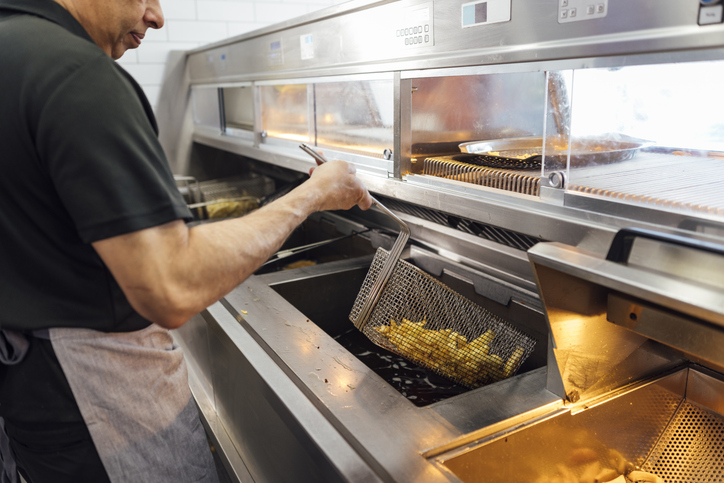Why do you need bakery insurance?
Whether you’re creating cakes for weddings, crafting cupcakes or perfecting the artisan doughnut, it’s important to be covered.
As a bakery business, there’s always a risk of accidents and damage in the kitchen. But as a customer-facing business that serves food and drink to the public, you’ll also need to be covered for public and product liability should your products or services cause an injury or damage someone’s property.
Bakery insurance coverage
Bakeries usually take out one or all of these types of cover:
- Employers’ liability insurance – Covers you if an employee becomes ill or injured while working. This is a legal requirement if you employ one or more people.
- Product liability insurance – Covers you if someone becomes ill or injured by a product you have supplied e.g. food and drink.
- Public liability insurance – This covers you in case your product or service causes injury or damage to a customer or someone who isn’t an employee.
- Business contents insurance – Covers any business equipment and tools you have against theft, fire or damage. Check your provider to see if this covers perishable stock such as food and ingredients.
- Legal expenses insurance – In case you need to pay legal costs associated with your business.
- Personal accident insurance – This protects you (or anyone you name in the policy) in the case of an accident, and covers you both in and out of working hours.
How could bakery insurance protect your business?
Here are a few scenarios where having bakery insurance coverage could come in handy:
- A customer getting an allergic reaction to food you’ve served
- Your kitchen being broken into and equipment stolen
- A client refusing to pay for a wedding cake, causing you to raise a legal case
Choosing a bakery insurance policy
When choosing bakery insurance policies, it’s good to ask yourself:
- What types of workers do I employ?
–You’ll need to have employers’ liability insurance no matter the type of employees you have, including full/part time, contractors or permanent staff. - Will my business grow in the future?
–It’s good to plan for your business growing by getting flexible cover that can grow with you. - Which liability cover limit should I choose?
–Make sure you take into consideration the maximum amount your business could lose in terms of public liability and choose a policy that reflects it.
FAQs
- What types of business insurance are mandatory? Employers’ liability insurance is the only type of business insurance you’re legally mandated to have, which is applicable no matter how many employees you have. However, as a public-facing business, it’s strongly recommended to have public liability insurance to go alongside this.
- Should I get standalone policies or a bundled insurance package? This will depend on the types of insurance you need for your business. Insurance bundles can be helpful in getting the full coverage, and can often be tailored to your needs. However, if you’re already covered for one aspect of your business, you might only need a standalone policy. Always compare policies to make sure you’re getting the best value.
- What information do I need to apply for a policy? – When applying to for business insurance, you’ll need to provide some basic information about your business. This often includes:
- your name
- your address
- the size of your business
- your annual turnover
- how many employees you have
- any previous claims made against your business
See more:
What insurance do I need for a food stall? – Everything you need to know about getting insurance for your food stall.
What insurance do I need for a café? – Nailed the latte art? It’s time to make sure you and your café are covered properly.
Do need insurance for your business? Try our free quote-finding form and answer a few questions (it takes less than a minute).




